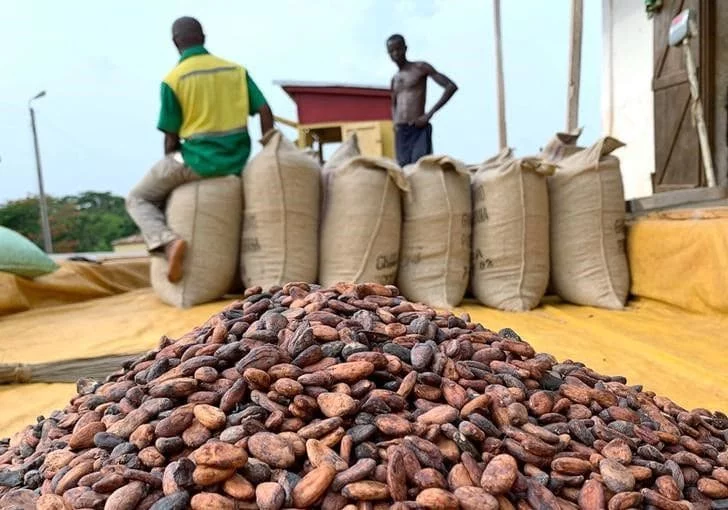
IN a significant blow to the global cocoa market, trading houses are facing losses of at least $1bn after Ghana failed to deliver cocoa beans this year. This situation has been exacerbated by soaring global cocoa prices, driven by factors like adverse weather, bean disease, smuggling, and illegal mining, which have significantly reduced cocoa production in Ghana, the world’s second-largest cocoa producer.
According to industry insiders, Ghanaian authorities announced a delay in delivering up to 350,000 metric tons of cocoa this season—nearly half of what was sold—due to the country’s devastated crop. ‘This delay is unprecedented and has left traders scrambling to cover their positions in a highly volatile market,’ an anonymous source from a leading trading house told Reuters.
The delayed deliveries have forced traders to liquidate short positions in the futures market at significant losses. Trading houses like Cargill, Olam, and Barry Callebaut, which use the futures market to hedge against price fluctuations, are now facing financial distress.
The disruption has caused a near standstill in the cocoa futures market. ‘We’re sitting staring at our screens, barely trading,’ Reuters quoted a top cocoa trader at a global agricultural commodity trading house as saying. The anticipation of receiving physical cocoa has traders maintaining long positions while managing short positions in the futures market to hedge against potential losses.
The sudden surge in cocoa prices—from approximately $3,000 per ton to about $11,000 per ton—has exacerbated the situation. As traders await the delayed deliveries, they have had to cover their short positions at higher prices, leading to aggregate losses estimated at $4,000 per ton.
This crisis marks the third consecutive year of deficit in the cocoa market, with prices roughly doubling over the past year. The financial impact on trading houses has been profound, prompting them to pass on higher costs to chocolate manufacturers like Hershey and Mondelez. However, these companies face challenges in transferring the increased costs to consumers, who are already responding to price hikes by reducing chocolate purchases.
Market liquidity has also decreased due to exchanges requiring traders to post more cash as collateral to cover their hedges, leading to increased price volatility. The collateral, known as margin calls, rises with the futures prices, adding to the financial strain on traders.
Notably, Ghana’s cocoa regulator mentioned that while they are looking to roll over some volumes, it would not be as significant as initially feared. ‘We understand the gravity of the situation and are working to mitigate the impact on the market,’ said a spokesperson for the regulator.
The cocoa market continues to grapple with the repercussions of Ghana’s delivery delays, highlighting the intricate balance between production, trading, and market stability. As the situation unfolds, stakeholders across the supply chain are bracing for ongoing volatility and financial pressure.













